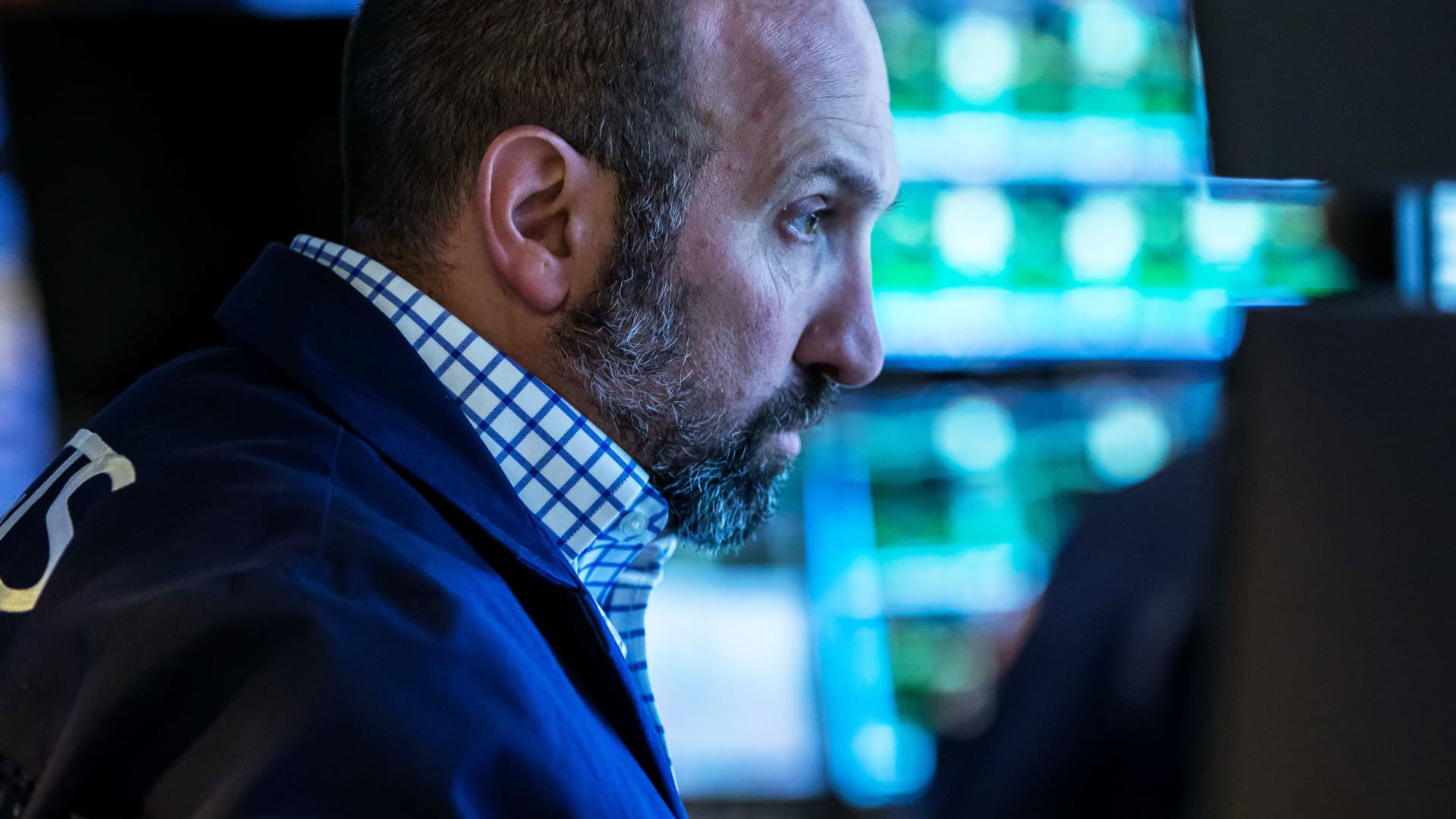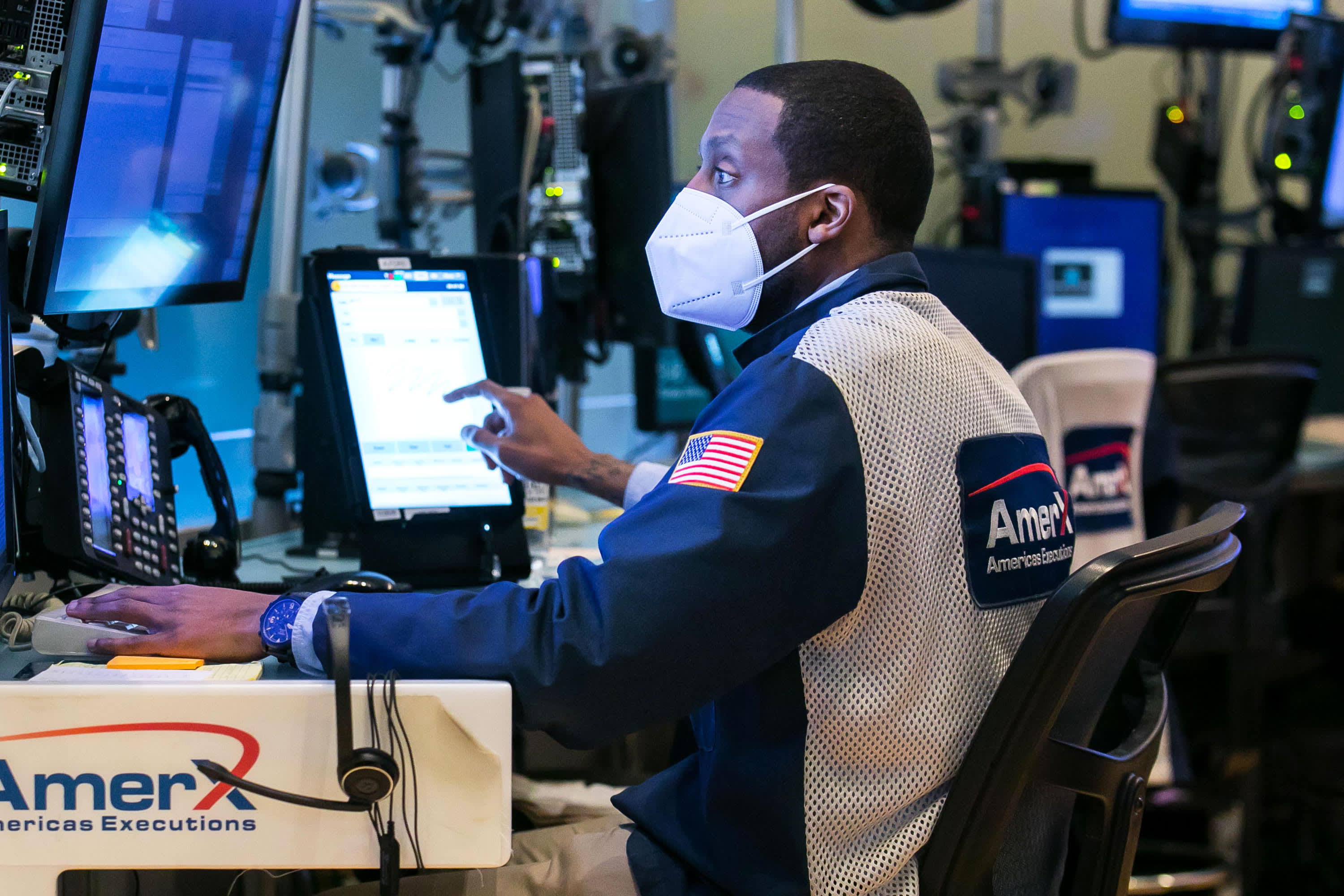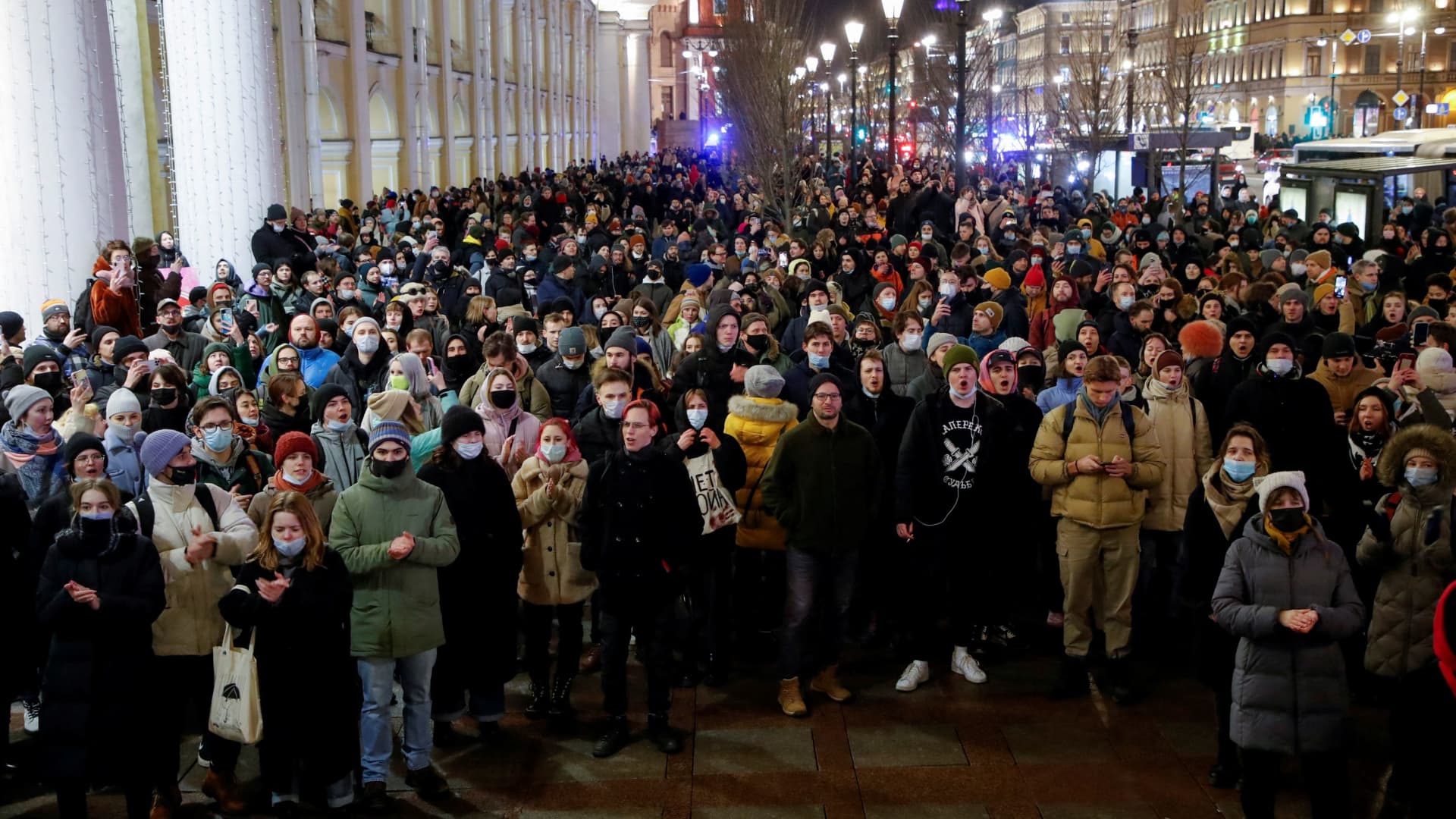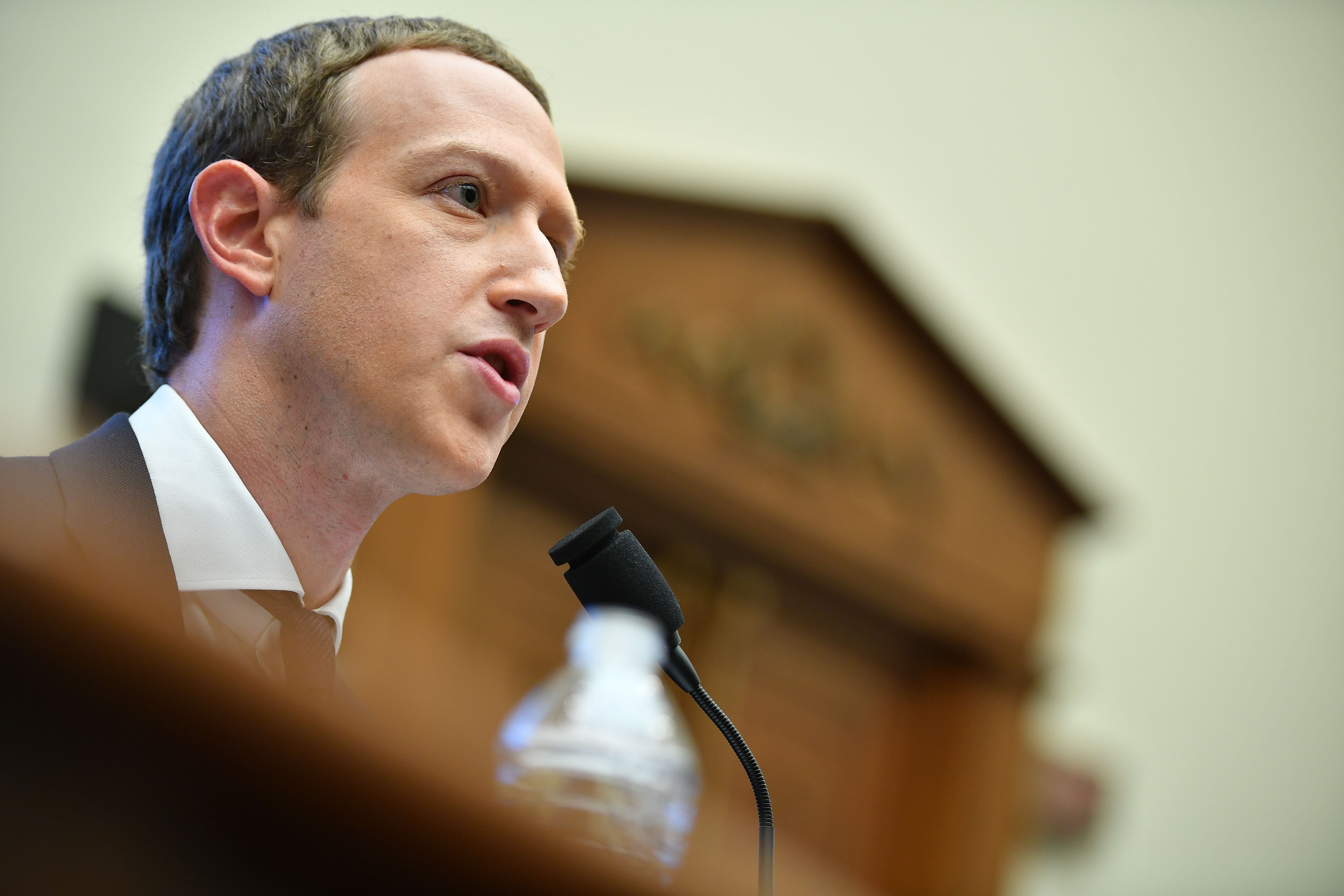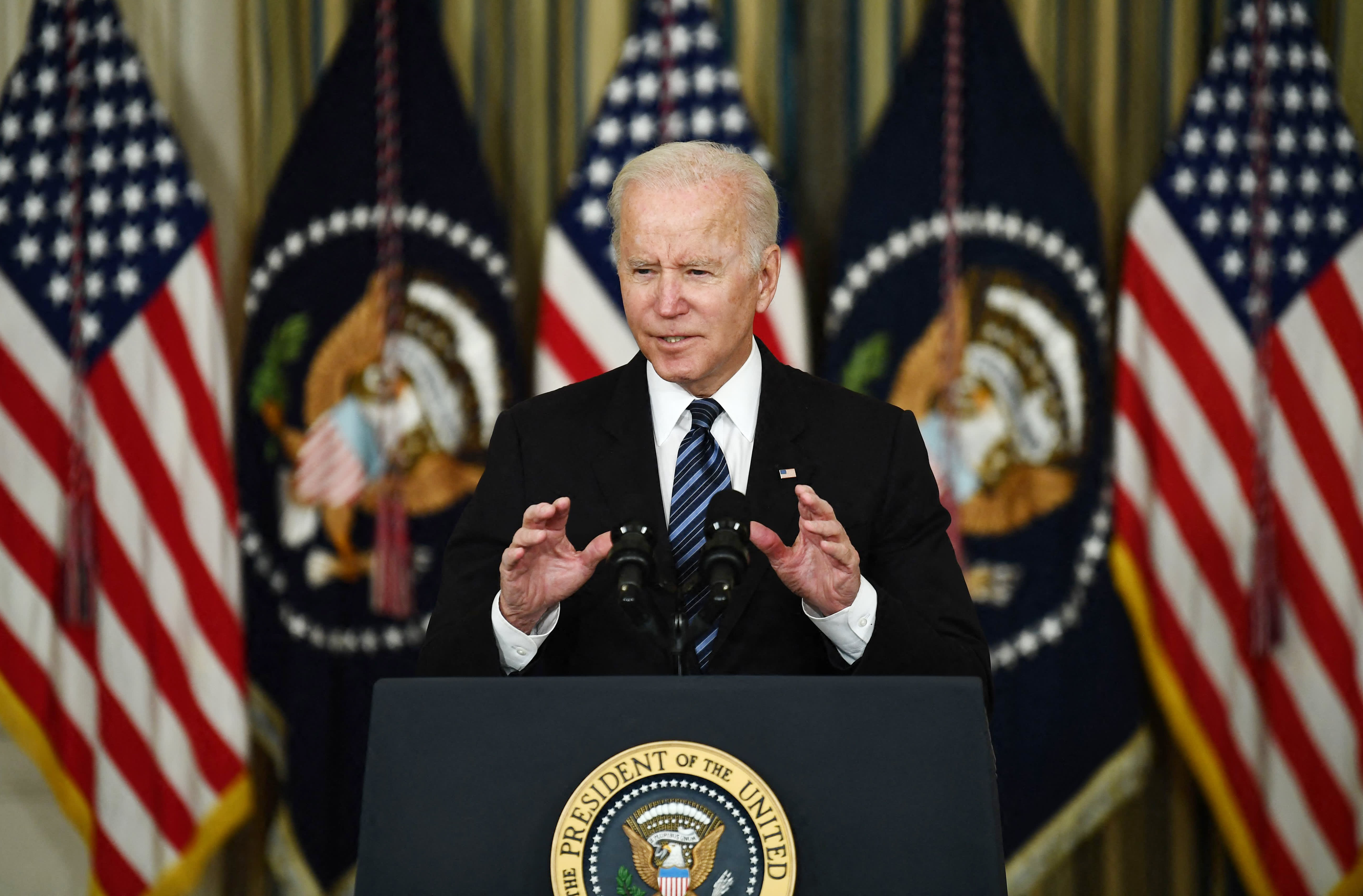India's ties with Russia remain steady. But Moscow's tighter embrace of China makes it wary
Moscow has also grown close to Beijing since invading Ukraine, and that raises critical national security concerns for New Delhi.
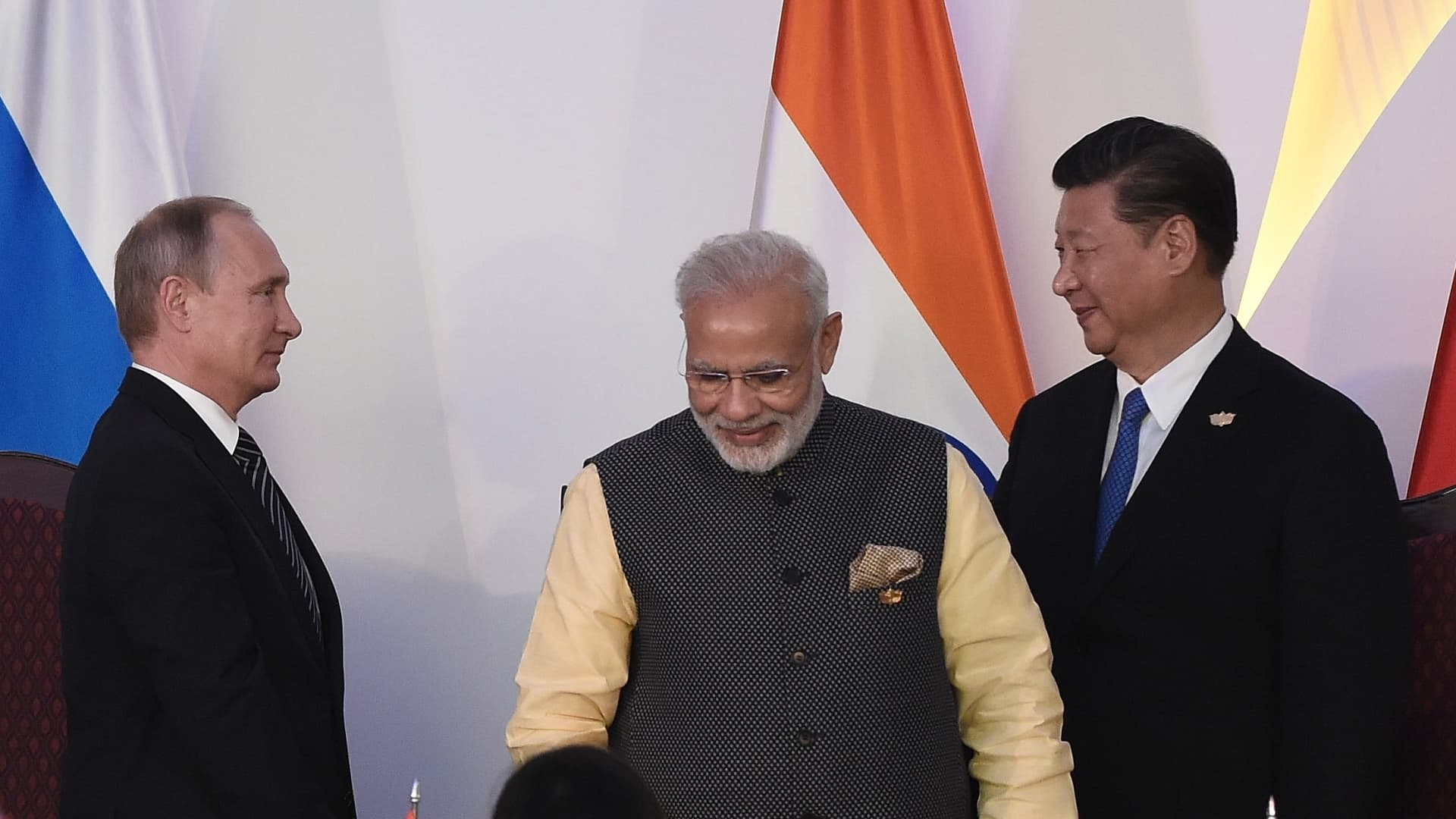
Russia's President Vladimir Putin, India Prime Minister Narendra Modi, and China's President Xi Jinping prepare to leave at the concluding session of the BRICS summit at Taj Exotica hotel in Goa on October 16, 2016. (PRAKASH SINGH/AFP via Getty Images)
Prakash Singh | Afp | Getty Images
India's relationship with Russia remains steadfast as both sides seek to deepen their economic ties. But Moscow has also grown close to Beijing since invading Ukraine, and that raises critical national security concerns for New Delhi.
Indian external affairs minister S. Jaishankar recently said the country was ready to restart free trade negotiations with Russia.
"Our partnership today is a subject of attention and comment, not because it has changed, but because it has not," he said, describing the relationship as "among the steadiest" in the world.
Russia also wants to "intensify" free trade discussions with India, Deputy Prime Minister Denis Manturov said during a visit to Delhi. Manturov is also Moscow's trade minister.
Despite the display of economic cooperation, India's leaders are "carefully watching" as Russia becomes more isolated and moves closer to "China's corner," said Harsh V. Pant, vice president for studies and foreign policy at Observer Research Foundation, a New Delhi-based think tank.
Russia's "weak and vulnerable position" and growing reliance on China for economic and strategic reasons, will definitely be worrying for India, he told CNBC.
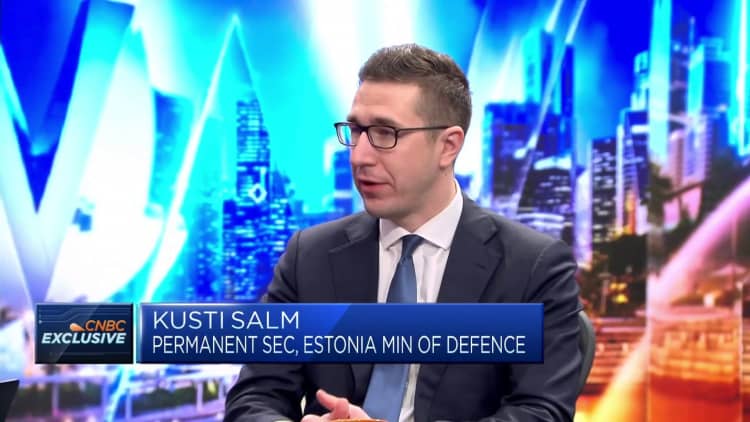
It's becoming "more difficult with every passing day because of the closeness that we are witnessing between Beijing and Moscow," Pant noted. "The pressure on India is increasing, it certainly would not like to see that happen."
New Delhi will try as much as possible to avoid a potential "Russia-China alliance or axis," Pant added. "As that will have far reaching consequences and will fundamentally alter India's foreign policy and strategic calculation."
There are national interest reasons "why India continues to buy cheap Russian oil and trade with them, this FTA is part of that," said Sreeram Chaulia, dean of the Jindal School of International Affairs in New Delhi.
But it appears "this relationship is going down from being a very high-value strategic partnership to a transactional one," he noted, adding Moscow's "tighter embrace of China" doesn't bode well for India's national security needs.
India, which holds the current G-20 presidency, still hasn't condemned Russia over its invasion of Ukraine.
A reliable partner?
In its latest foreign policy doctrine published in late March, Russia noted it will "continue to build up a particularly privileged strategic partnership" with India.
New Delhi's longstanding ties with Moscow date back to the Cold War. It remains heavily dependent on the Kremlin for its military equipment. This defense cooperation is vital given India's tensions along the Himalayan border with an increasingly assertive China, said ORF's Pant.
But Russia hasn't been able to deliver critical defense supplies it had committed to India's military due to the Ukraine war, which could strain the relationship, said analysts.
In March, the Indian Armed Forces acknowledged to a parliamentary committee that a "major delivery " from Russia "is not going to take place" in a report. "They have given us in writing that they are not able to deliver it," the IAF official said. The report did not mention the specifics of the delivery.
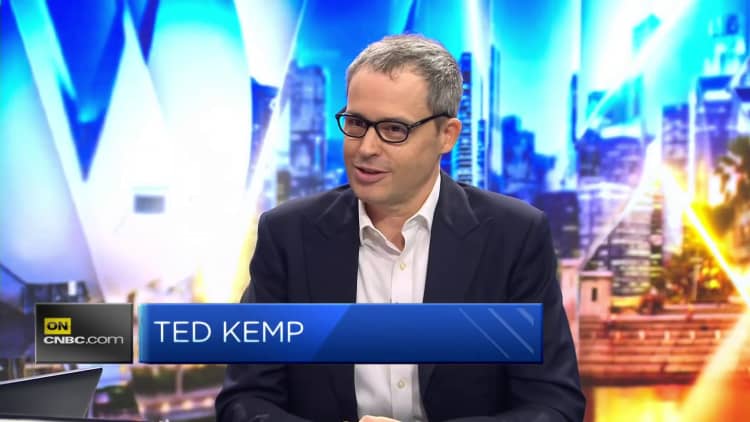
"Russia has already delayed the delivery of S-400 anti-missile delivery systems to India due to the pressures of the Ukraine war," said the Jindal School's Chaulia. "So, there is a big question mark on Russia's reliability."
India's reliance on Moscow, historically, was seen as pivotal "to help moderate China's aggression," he added, to maintain a stable balance of power against Beijing.
Now, the country cannot expect Russia to play "the same strategic role for India as it used to prior to the Ukraine war. That's because of the technological degradation of its military and weakening position as a result of the war," he said.
'No limits' partnership
Still, Indian authorities will continue to make every "effort till last minute" to create "some space," in the Russia-China dynamic, Pant added, "so that the space could be exploited by India to ensure its leverage over Moscow remains intact."
But China is also making moves to strengthen its ties with Russia. In March, Chinese President Xi Jinping met with Russian President Vladimir Putin in Moscow and the two leaders vowed to deepen their relations.
Both sides sealed a "no limits" partnership in February last year — just before Russia invaded Ukraine — and agreed to have no "forbidden" areas of cooperation.
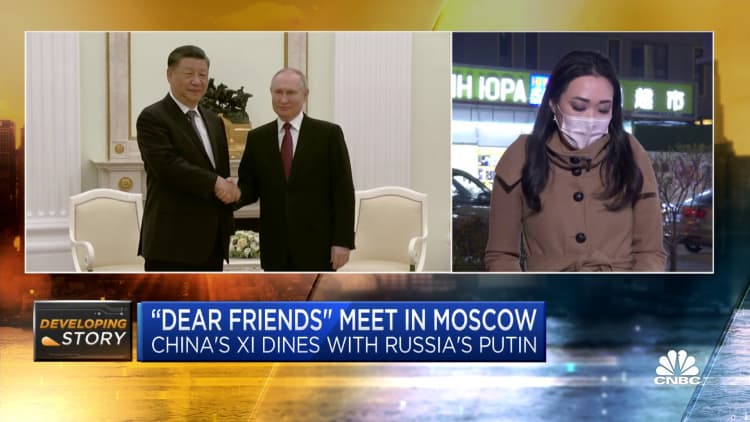
A "Russian tilt" in favor of Beijing "would clearly be bad for India" if war broke out between both nations, noted Felix K. Chang, a senior fellow at the Foreign Policy Research Institute, a Philadelphia-based think tank.
Even without a war, "China's warm relationship with Russia could encourage Beijing to pursue its interests more forcefully in South Asia, whether on its disputed Himalayan border or with India's surrounding neighbors," he wrote in April. "That too could shift the power balance between China and India and lead to greater regional tensions."
So India needs to "pick up the pace" in its embrace of the West, Chang added, "given how close the Russian-Ukrainian war has brought China and Russia."
Move toward the U.S.
The West recognizes the challenge India faces in the Indo-Pacific region, said Pant from ORF, "that it needs Moscow in managing Beijing in the short to medium term, given its defense relationship with Russia."
"That sensitivity is, perhaps, what's driving the Western outreach to India, despite differences over Ukraine," he said, adding national security concerns are driving India closer to the U.S.
Indian Prime Minister Narendra Modi will join U.S. President Joe Biden and his counterparts from Australia and Japan at the third Quad leaders summit in Sydney on May 24. The Quad is an informal security alignment of the four major democracies that was forged in response to China's rising strength in the Indo-Pacific.
While America sees "China as the main challenger to U.S. global primacy, it does not see India that way," said Rajan Menon, director of the grand strategy program at Defense Priorities, a Washington-based think tank.
"To the contrary it views India, nowadays, as a partner to counterbalance China," he noted.
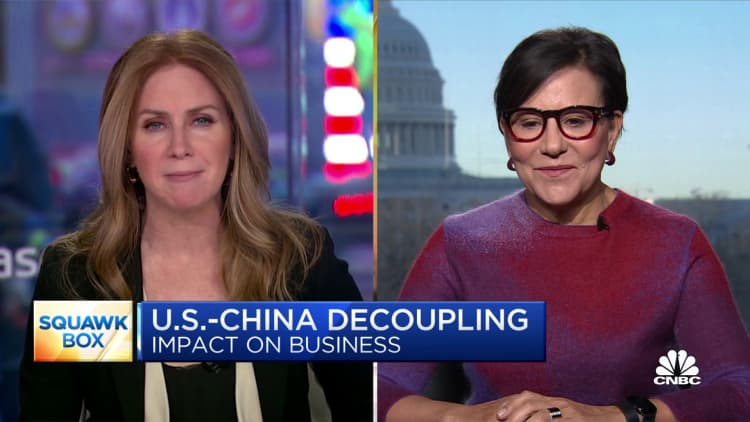
"That overlapping strategic interest explains why Washington has not reacted to India's alignment with Moscow in the way it has to the 'no-limits' friendship China has forged with Russia," Menon said.
As for Russia, how it balances this evolving India-China dynamic will be its biggest test, noted Pant.
"It'll be interesting to see how this triangle works. In the past, it had worked because there was this uniform sense among the three countries to talk of a multipolar world, where American unipolarity was the target," he noted.
"Today, for India, it's China's attempt at creating hegemony in the Indo-Pacific is the target. For Russia and China, the priorities are different than for India," Pant added. "Russia's ability to manage India and China will be under the scanner," as far as New Delhi is concerned.

 Tekef
Tekef 







